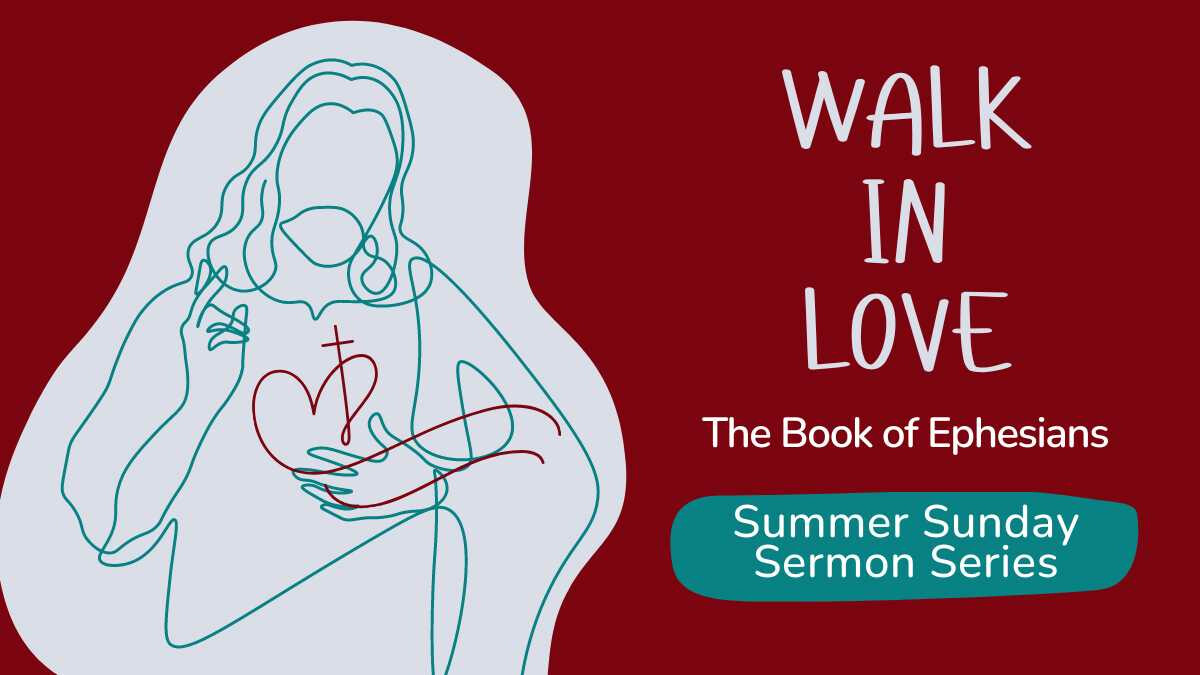
Day 7
“In Him also we have obtained an inheritance, having been predestined according to His purpose who works all things after the counsel of His will, to the end that we who were the first to hope in Christ would be to the praise of His glory.” Ephesians 1:11-12
In Christ, Predestined for an Inheritance
Notice the verb tense in this verse. “We have obtained an inheritance.” The perfect tense “we have obtained” reflects a condition of a completed action, a completed action with ongoing status. This event, our obtaining an inheritance, has already happened. The inheritance already belongs to us. For believers in Christ, this sounds strange. We live in a broken world. An everlasting inheritance feels far away from our current reality. Yet here it is. Paul stated with great confidence to the church at Ephesus that “we have obtained an inheritance.” The confidence does not come from our ability to earn or deserve this inheritance. The confidence does not come from our ability to exert our will for this desired outcome. Paul’s confidence squarely rested on the God who grants our inheritance through His sovereign plan by adopting us into His family. We “obtained an inheritance, having been predestined according to His purpose who works all things after the counsel of His will.” God predetermined our adoption and subsequent inheritance. God never fails in His plans. He always keeps His promises. He always fulfills what He wills. As Isaiah wrote, “For the Lord of hosts has planned, and who can frustrate it? And as for His stretched-out hand, who can turn it back?” (Isaiah 14:27)
For the believer in this broken life, how have we “obtained an inheritance?” This inheritance is in the spiritual realm. This inheritance is already ours in abundance in the heavenly places. “Blessed with every spiritual blessing in the heavenly places.” We are awaiting the physical manifestation of our adoption and our inheritance, but we have already taken possession of it now. God sees us as already seated with Christ “in the heavenly places.” Paul described it this way in Romans 8, “However, you are not in the flesh but in the Spirit, if indeed the Spirit of God dwells in you. But if anyone does not have the Spirit of Christ, he does not belong to Him.” (Romans 8:9) The moment we believe, we belong. The moment we believe, the Spirit comes into our lives and marks us as belonging to Christ. The work is completed. Christ sat down at the right hand of God on high, a physical sign of the completion of His work. When we trust in Christ, we too are seated with Him. He has completed His work. Therefore, the work of our salvation is also completed through our faith in Him. However, there is a physical reality do the longing of our hearts. Though we already stand forgiven and complete in Christ, we still struggle in this life. There is a “now and not yet” aspect of God’s work of salvation. Our righteous and eternal standing remains for now and forever. However, in this life we long for the physical and ultimate completion of our salvation. “And not only this, but also we ourselves, having the first fruits of the Spirit, even we ourselves groan within ourselves, waiting eagerly for our adoption as sons, the redemption of our body.” (Romans 8:23)
“We who were the first to hope in Christ” stands in striking contrast to the opening of the next verse, “in Him, you also…” What is the pronoun distinction between the “we” of verse 11 and the “you” of verse 13? There are some proposed solutions to these purposeful pronoun choices. “The first to hope in Christ” might be Paul’s distinction between Jews and Gentiles. Later in this letter, the distinctive “we” and “you” of Ephesians chapter 2 points in this direction. In Ephesians 2 Paul told the predominately Gentile audience of the Ephesian church that “you” have been brought near and have been brought into the covenant that “we” Jews have enjoyed. However, at this juncture in the letter, it seems to be a way of distinguishing between the first generation of believers and the next generation of believers at Ephesus. Paul and the Apostles were part of that first generation of the early church. Though Paul appears on the scene of the biblical narrative as a persecutor of the church, Christ confronted Paul in the early days of the expansion of Christianity. Paul went from persecutor to believer and immediately became an instrument of Gospel reach to the whole world. The “we who were the first to hope in Christ” seems to be a distinction from the “you” referring to the church at Ephesus. The church at Ephesus came into the faith a couple of decades after the initial wave of the spread of the Gospel. The first generation of believers brought “praise to His glory” through their hope in Christ. Paul transitioned from “the first to hope in Christ” to the Ephesians in verses 13-14 with the “in Him, you also…to the praise of His glory.” The distinction seems to be a distinction of timing and not of result. In other words, from the beginning of the embrace of the Gospel to all subsequent generations of believers, the outcome is the same. The first generation of believers, and all subsequent generation of believers, bring glory of God through their embrace of the saving hope found in Jesus Christ. Just like Paul, the Ephesian believers brought praise to the glory of God through God’s work of salvation, just as Paul stated in verse 14. Just like Paul and the Ephesians, our salvation also brings praise to the glory of God. God is working. He worked through Christ to bring about all of the spiritual blessings that Paul articulated in Ephesians 1:3-14. God worked in the early believers, saving them and granting them an everlasting inheritance. He worked in the believers from the time of the church at Ephesus. God has been at work in all of the generations since. And He is working in your life and mine, if we have faith in Christ. He is working in our lives just as He worked in Paul’s life. The end goal of this entire plan of salvation, the telos, results in the praise of the glory of God.
Suggested Prayer: God, thank You for the promise of an inheritance that is already mine. My confidence and hope is in You and Your amazing plan to save sinners through Jesus Christ. Be praised both now and forever in my life.



Login To Leave Comment